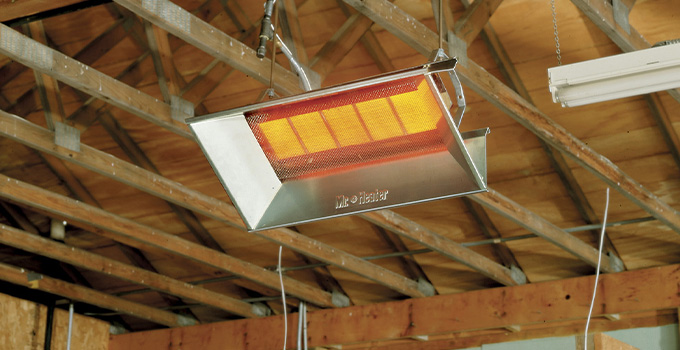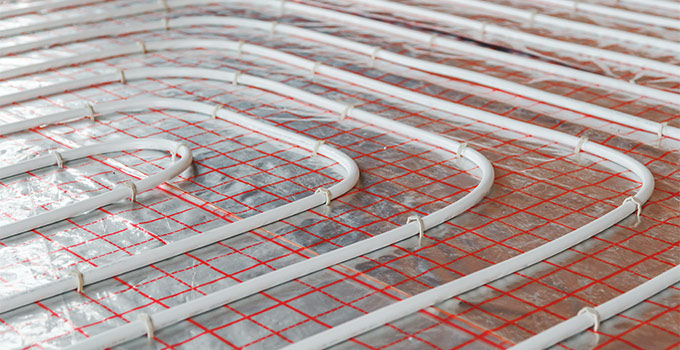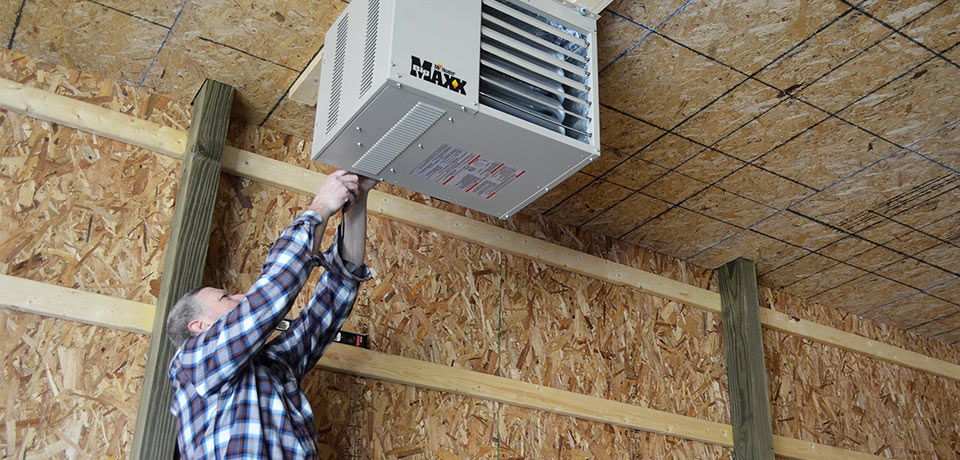What are the top considerations for keeping workshops warm and cozy through the winter months? Energy availability, shop size, reliability, and cost-effectiveness said Paul Goota with the Co-op Equip Team at Lake Country Co-op in Prince Albert, Sask.
“Natural gas is by far the cheapest energy source if you have access to it, followed by propane,” said Goota. “Electric heaters are incredibly expensive to run.”
Three general types of shop heaters are typically installed in farm workshops:
1. Forced air furnaces
These heaters use electric high-velocity fans to draw in cool air, which warms as it crosses a heat exchanger before being blown into the surrounding area. Installation is simple as the unit only requires a 115-volt outlet, usually hangs from the ceiling and is vented vertically or horizontally. Forced air furnaces are relatively cost-effective, use spark ignition to reduce energy operating costs, and have self-diagnostic control modules to monitor performance.
Goota recommended Mr. Heater-brand units, which are rated by the unit of measurement for heat, the British Thermal Unit (BTU). A 50,000-BTU furnace can heat a 1,250-square-foot garage, an 80,000-BTU unit up to a 2,000-square-foot building, and a 125,000-BTU model heating up to 3,125-square-foot shop.

2. Radiant infrared heaters
These heaters use a flame to heat an element or tube, which emits radiant heat to directly heat people and objects. They are mounted near the ceiling and may not require a source of electricity. They can be up to 99 per cent efficient in turning natural gas or propane into heat. Radiant infrared heaters are also rated by BTUs and sized to match the building footprint.

3. In-floor radiant hydronic
This system uses a series of pipes embedded in the concrete shop floor to circulate water heated by a boiler. It is the most expensive to install and is usually designed by a professional contractor. These systems are the most comfortable since the entire floor is warm. The shop temperature is very stable even when the doors are opened and closed on a cold winter day. The system can also be converted to geothermal heat.
Ultimately, Goota said the type of heat depends on the size of the shop, budget, how often the shop is used and the desired energy efficiency.
“For small existing shops or garages, forced air furnaces can be very economical,” he said.
For all types of furnaces, professional installation is required and must follow local codes and restrictions. These help protect your health and your property from the risk of carbon monoxide poisoning or fire.
Let your local Co-op Home and Agro Centre help provide information on their selection of heaters so you can stay warm all winter.

